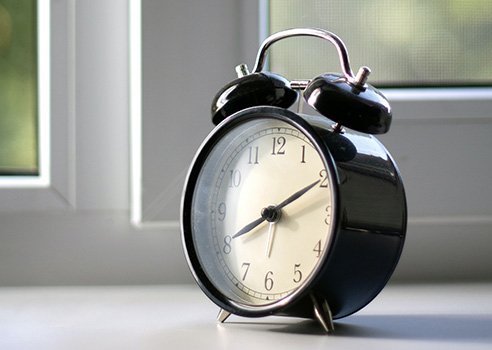Reading time: About 3 minutes
It’s always hard to find enough time for all the things we want to do. But somehow it’s extra-difficult to find writing time. What, then, is the best time to write?
I was born a night owl. I used to think 2 am was the perfect bedtime and I resented having to get up before 8:30. Paradoxically (or perhaps I mean, annoyingly), I had to be at work by 6 am in the years I worked as a senior newspaper editor. I loved my job but I was miserable, sleepwise.
But here’s the weird thing. When I was in my late-40s, I turned into a morning lark, overnight. I started waking at 5 am as if a fire alarm had sounded. To cope, I began going to bed at 10 pm. I was so concerned I even went to see a sleep doctor who attributed the change to hormones.
Having lived on both sides of the aviary, it’s clear to me that society gives more kudos to larks. The phrase “the early bird catches the worm,” dates back to 1678 and being early to rise will earn you cheery labels such as “energetic,” and “enterprising.” Late-sleepers, no matter how hard they work, are invariably described as lazy or slothful. This is so untrue and unfair.
Writers frequently debate the best time for writing. Given that I’ve spent the majority of my life as an owl, you might be surprised to learn that I, too, endorse morning writing (although I’m not silly enough to suggest setting an alarm for 5 am to do it). Here’s why I like mornings:
We’re usually in better moods. Our bosses and colleagues haven’t said anything stupid (yet), our children haven’t spilled the milk or crashed the car (yet), our partners haven’t thrown their socks on the floor or left the dirty cereal bowl on the counter (yet). The day is fresh, the potential unlimited. If we’re in a neutral or good mood it’s far easier to write than if we’re pissed off over something.
We have more willpower. So many people see willpower as a straightforward “discipline.” Resolve to do something and, do it, dammit. But science has now shown that willpower, like oil, is a limited resource. We get only so much of it. So if you use up your willpower on other things throughout the day — such as exercising, dieting, finishing something for your boss you don’t want to work on – you won’t have enough willpower left for writing, later.
The creative brain seems to awaken sooner. Neuroscientists call the editing brain the “focused” part. You might think of the creative brain (the prefrontal cortex) as more “diffuse”. The good news is that the creative brain seems more active directly after sleeping so if you have difficulty stopping yourself from editing while you write, use this waking-up advantage to help. (And here are some other stop-editing-while-you-write tips.)
It helps squeeze writing in to an otherwise crowded day. We’re all busy people. And days get only busier as they advance. In the evening, you may need to go to a child’s soccer game, a movie, a dinner party. But you’re not likely to have any other commitments between 5 and 9 am, are you? Writing first thing in the morning ensures you actually get it done.
It helps build the writing “habit.” Just as it’s smarter to exercise in the morning, so, too, it’s smarter to write then. The things we do without thinking about them – making our beds, brushing our teeth, taking out the recycling – are less painful because we don’t waste any time arguing with ourselves. Building a habit takes anywhere from 18 to 254 days so this is a long-term commitment, but it’s worth it so you can beat procrastination forever.
If you want to give early-morning writing a try, here’s my advice:
- Don’t adjust your wakeup time dramatically. Get out of bed by no more than 5 to 15 minutes earlier than usual. Solidify this new time for a few weeks before adjusting it further (if you want to.) Use the Kaizen technique and make your first goal so stupidly simple that you can’t possibly fail.
- Don’t have a shower or eat breakfast before writing. Simply grab yourself a weak tea or a glass of water. (Try to avoid coffee until you want to do more focused work.)
- Start with a mindmap. This will help inspire you.
- Use mornings for mindmapping and writing ONLY. Don’t do other writing-related tasks such as research or editing. (Make time for them later in the day.)
- Don’t check your email or Facebook before writing. Instead, use these things as a reward for when you’re finished.
If you’re a night owl, follow tips that will work better for you. But try to spend at least a little morning time writing.
What’s do you find is the best time to write? We can all learn from each other so please share your thoughts with my readers and me by commenting below. (If you don’t see the comments box, click here and then scroll to the end.)


